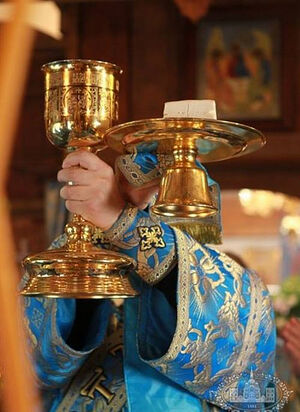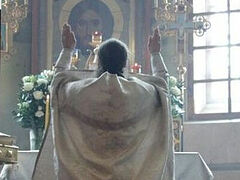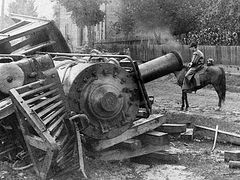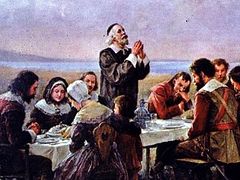 “This is good. This is bad.” In one form or another, we divide the world into light and dark. It might take the form, “I like this. I do not like that.” What we find easy are the things we see as good and the things we like. If a day is filled with such things, we are likely to be happy. If the day is marked by things we do not like, then we are unhappy. We find it easy to be thankful for the good things. Everybody is grateful for things they like. Indeed, it is something of a tautology to be thankful for things we like – even the gentiles do the same.
“This is good. This is bad.” In one form or another, we divide the world into light and dark. It might take the form, “I like this. I do not like that.” What we find easy are the things we see as good and the things we like. If a day is filled with such things, we are likely to be happy. If the day is marked by things we do not like, then we are unhappy. We find it easy to be thankful for the good things. Everybody is grateful for things they like. Indeed, it is something of a tautology to be thankful for things we like – even the gentiles do the same.
Of course, our days are not filled with good things that we like. Our days are often a mix – good and bad – liked and unliked. This reality defines the path of modern persons: we seek to maximize the good and minimize the bad. Ronald Reagan, an icon of modern America, liked to quote a song from the 40’s:
You’ve got to accentuate the positive,
Eliminate the negative,
Latch on to the affirmative,
No room for Mister In-Between.
This is modernity in its prime. The modern myth is bound up with the “better world,” the notion that through proper management and applications of science and technology (and all of the so-called “sciences”), we can make the world a better place – meaning that we will be able to eliminate the negative and maximize our pleasure. Pleasure is equated with the good, while suffering is seen as inherently bad. Modernity seeks to turn the world into a candy store (without diabetes).
The most bizarre outcomes of modernity’s false philosophy can be seen in today’s campus cults who demand “safe places” – defined as a world without discomfort or contradiction. “You must not say this, think that, wear this, eat that, drink this, and on and on, because these things are bad, because these things create pain (my imagined pain), and you are evil.” It’s a brave new world that is being “bettered,” but I suspect very few will want to live in it.
My continuing critique of modernity has nothing to do with technology, medicine, science, etc. None of those things are “modern” in and of themselves. Modernity is a set of ideas, not a time in history. One of its most subtle bits of propaganda is to pass itself off as a historical period, and, even, as the inevitable outcome of everything that has gone before. To be “unmodern,” is therefore, to be “out-of-date,” “backward,” “Neanderthal,” “positively Medieval,” or some such descriptive. Modernity is propaganda parading as history.
It is also ungrateful.
There is a classic Orthodox prayer set for the morning:
O Lord, grant that I may meet all that this coming day brings to me with spiritual tranquility.
Grant that I may fully surrender myself to Thy holy Will.
At every hour of this day, direct and support me in all things.
Whatsoever news may reach me in the course of the day,
teach me to accept it with a calm soul and the firm conviction that all is subject to Thy holy Will.
Direct my thoughts and feelings in all my words and actions.
In all unexpected occurrences, do not let me forget that all is sent down from Thee.
Grant that I may deal straightforwardly and wisely with every member of my family, neither embarrassing nor saddening anyone.
When I first encountered this prayer, I found it impossible to say it. Instead, its un-prayed presence, for me, constituted wrestling with God.
Is God at work in all things and are all things being brought to a good conclusion? Are the terrible things that happen to me or to another devoid of God or, are they, somehow the work of the Cross within history? This last question proved to be an open door for me. God does not stand outside of history manipulating, controlling one thing or another, aloof and judging. The Cross of Christ is not a single event of three hours duration, a mere payment for sin. The Cross is the revelation of a mystery-at-work that has been hidden from the ages but has always been true. Christ is the “lamb slain from the foundations.”
Christ reveals to us that He not only loves those who suffer, but He becomes those who suffer (Matt. 25:40).1 Christ becomes what we are, uniting us to Himself, that we might become what He is. On the Cross, we see, not only the suffering of God, but the suffering of the whole world, everywhere and through all time.2 Like Joseph the Patriarch, we are able to say of suffering, “You meant it to me for evil, but the Lord meant it to me for good.” (Gen. 50:20)
With this in mind, we are able to give thanks always and for things, not because we think suffering itself is good, but because the One who alone is good has Himself become our suffering. By the same token, when we ourselves do good to those who are in need, and unite ourselves to them, we also unite ourselves to God whose providence cares for all at all times and all places.3
Thanksgiving, particularly with this understanding in mind, is a continual act of offering and sacrifice, the very heart of a Eucharistic life. “Thine own, of Thine own, we offer unto Thee, on behalf of all and for all.”
No doubt, Christians will continue in doing good. However, in spite of every modern mythology, the world will not be a “better” place. Evil things will continue to happen (many of them done in the name of a better world). Modernity, however, cannot bear suffering, which is truly tragic in that suffering is an inevitable part of every life. The modern world’s absence of a meaningful narrative with regard to suffering – other than to eradicate it – perpetuates and cultivates a heart that is frequently unable to be grateful. Of course, if sufficient steps are taken to shield someone from the reality of suffering, a make-believe “better” world can be maintained for a space of time. This, in large part, is the origin of the cult of prosperity (in its many guises).
The Christian heart, on the other hand, is manifest most prominently in the giving of thanks. The central act of worship is itself the giving of thanks (Eucharist is from the Greek for “giving thanks”). In the very first paragraph of St. John Chrysostom’s anaphora, we hear:
For all these things we give thanks to You, and to Your only-begotten Son, and to Your Holy Spirit; for all things of which we know and of which we know not whether manifest or unseen,
The central act of Christian worship gives thanks for all things, to which the people say, “Amen.”
The mystery of our salvation is found within the Cross of Christ, His suffering, death and resurrection. The fullness of that salvation reveals itself to us as we come to know that all things, known and unknown, those we see as good and those we see as bad, have been gathered together by God into Himself. It is there in that union (and there alone) that “all things work together for good.” And there we give thanks.



